Keywords: Victory
There are more than 200 results, only the first 200 are displayed here.
-

ENVIRONMENT
- Frank Brennan
- 28 November 2016
'No matter what the economic, political and legal problems confronted by modern day India, our response can be improved by an application of the key principles and norms developed in the international law of trade and human rights, helping to enunciate the realm of law, regulation and political accountability, enhancing public scrutiny providing the right environment for doing business.' Frank Brennan presents the 25th JRD Tata Oration, Xavier School of Management, Jamshedpur, India, 26 November 2016.
READ MORE
-
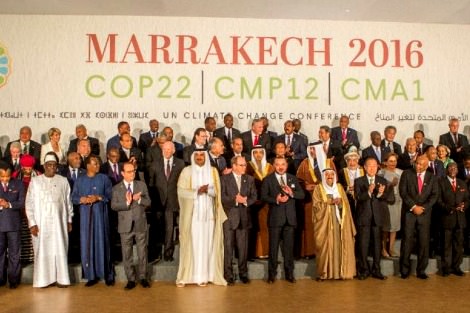
ENVIRONMENT
- Thea Ormerod
- 17 November 2016
9 Comments
The evangelical Christian vote no doubt assisted the climate-denying Trump to his election victory, yet it is remarkable how out-of-step it is with the general view of faith communities globally. This view was made abundantly clear the day after Trump's victory on 10 November, with the release of an Interfaith Statement in Marrakech, Morocco, and it should stand as a challenge to those in public life who continue to block climate action.
READ MORE 
-
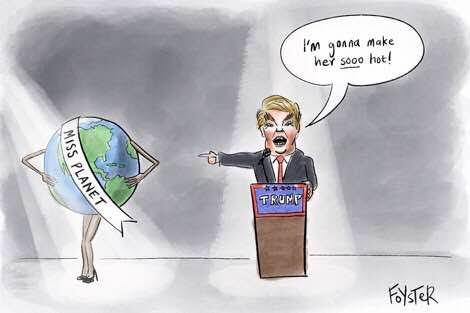
ENVIRONMENT
- Greg Foyster
- 17 November 2016
5 Comments
Here we go again. Just a few days after the historic Paris Agreement on climate change entered force, another Republican climate denier has snatched the White House. Donald Trump isn't just a closet sceptic, paying lip-service to climate change while doing nothing about it. He's an out-and-proud conspiracy theorist. All signs point to the US returning to its role as international climate saboteur, and for much the same reasons: Republican paranoia over the economic rise of China.
READ MORE 
-
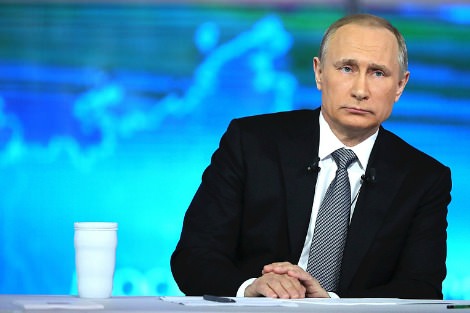
INTERNATIONAL
- Justin Glyn
- 15 November 2016
6 Comments
If a failure of empathy marks our understanding of internal politics, its effects are magnified, with even worse results, in the international arena. A classic example is Russia. Since the fall of the Soviet Union, the west has failed to take Russian interests seriously. I endorse neither the present Russian government nor its point of view. However, knowing that the other side has a point of view and what it is is vital in avoiding miscalculations. You don't get a second chance with nuclear weapons.
READ MORE 
-
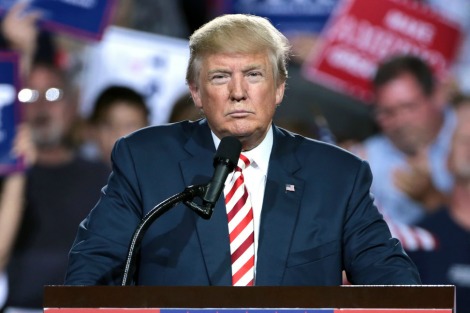
INTERNATIONAL
- David James
- 10 November 2016
17 Comments
The first step for a business person is to make the sale, usually by over-promising and tapping into the emotional triggers of the customer. That is what Trump did. Over and over, he assured everyone that electing him would be 'fantastic'; he would deliver; customer-value is in the bag. The next step, once the sale is made, is for a hard financial logic to be applied. Trump's hype will be, at the very least, toned down. Once the customer has coughed up, business people typically become extremely pragmatic.
READ MORE 
-

AUSTRALIA
- Andrew Hamilton
- 12 October 2016
5 Comments
The best writers on sport show that it is a metaphor for life. Perhaps that is why the triumph of the Western Bulldogs in the AFL Grand Final has been so ruthlessly milked for larger significance. But I would like to exploit it once more for the way in which it illustrates the weakness of a liberal politics that assumes that all will benefit from the economic growth that unfettered competition between individuals yields. The joy of the Western Bulldogs victory lay in its challenge to these assumptions.
READ MORE 
-
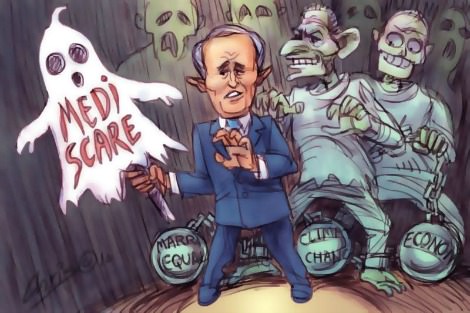
AUSTRALIA
- John Warhurst
- 03 October 2016
5 Comments
The main message of the 2016 election review delivered recently at the National Press Club by Tony Nutt, the federal director of the Liberal Party, was that Turnbull only failed to have a convincing victory because of the 'Mediscare' by the Labor Party. It is a message that deflects attention from the current and past weaknesses of the government and the prime minister. It is like a football coach who after a loss or a narrow win blames his team's performance on the dirty tactics of the opposition.
READ MORE 
-

RELIGION
- Frank Brennan
- 23 September 2016
18 Comments
'No good will be served by a royal commission auspiced by the state telling a Church how it judges or complies with its theological doctrines and distinctive moral teachings. By all means, set universal standards of practice expected of all institutions dealing with children, but do not trespass on the holy ground of religious belief and practice.' Fr Frank Brennan SJ addresses the Freedom for Faith Conference in Melbourne, 23 September 2016.
READ MORE
-
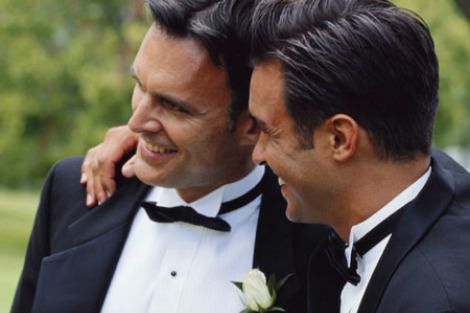
RELIGION
- Brian Lucas
- 09 September 2016
42 Comments
Marriage, and more broadly any other close domestic relationship, is a fundamental social institution. Could not the federal legislation move away from defining marriage to a regime where it recognises marriage? It could recognise Catholic marriage (as described in the Code of Canon Law). It could recognise Anglican or Jewish or Islamic marriage and it could recognise secular marriage (which could include a same sex relationship). On this basis the various 'marriages' are different but equal.
READ MORE 
-

AUSTRALIA
- John Warhurst
- 02 August 2016
6 Comments
Turnbull had hoped to bring about a new Senate with most of the 'troublemakers' gone. But the new cross-bench seems certain to be both larger and more diverse. Commentary since the election has concentrated primarily on how the numbers in the new Senate will make it difficult for Turnbull. A better focus would be to look back at Senate-government interaction over the past two years for some positive lessons for Turnbull about what actually happened. It was not just a numbers game.
READ MORE 
-
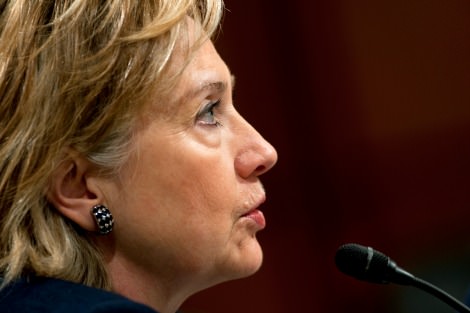
INTERNATIONAL
As the US goes through its convention season, it is becoming increasingly clear that the choice is between someone spouting decidedly undemocratic and possibly fascist rhetoric and someone for whom democratic decision-making is, at best, something to be evaded with as little scrutiny as possible. Both parties are moneyed and both seek foreign scapegoats upon which to direct media attention. November is shaping up to provide a distinctly unpalatable choice.
READ MORE 
-
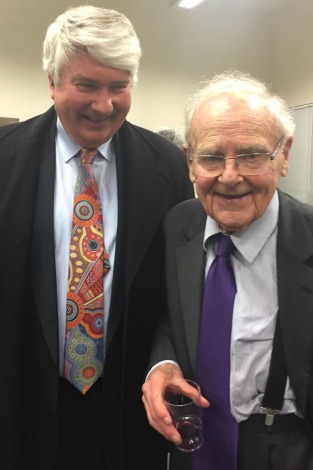
INTERNATIONAL
- Frank Brennan
- 26 July 2016
3 Comments
John traces the political ascent and descent of Sturzo whose first public office was as mayor of his own town. The chapter headings mark each step up and down the Everest of Italy's experiment with democracy and fascism: the emergence of political Catholicism in Italy; the dream takes shape; democracy without direction; democracy in decline; the search for a leader; the stick and the carrot; the voice of the watchman; and enter the night. Sturzo goes into exile; Mussolini takes over; and the Vatican is well pleased because the Roman Question is finally resolved in 1929 with the Lateran Treaties negotiated by Mussolini and Pope Pius XI, each of whom got what they were looking for.
READ MORE